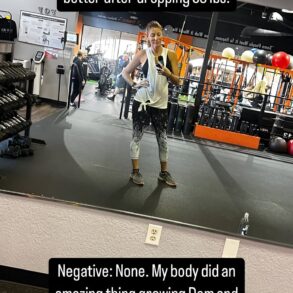 |
| PHOTO | UNSPLASH |
| For more Black Americans, the natural hairstyle is preferable because it doesn’t involve chemical maintenance. |
Janice Givens rocks natural curls.
She used hair relaxers, but in 2019 decided to grow out her hair.
“It seems like every six weeks I’m back in there again and then after a while, my hair seems like it has been destroyed from the relaxer,” said Givens, 57. “It was pretty frazzled [and] breaking off.”
More Black women are growing out their hair rather than resorting to chemical relaxers to remove their curly hair texture. Over a decade ago, the beauty standard for Black women was straight, pressed hair. But now more people of color are rocking locs, twists, or their natural afro like political activist Angela Davis did at the dawn of the Black Power movement in the 1960s.
However, some women are still team relaxers.
According to a statement on HairClub’s website, a hair relaxer straightens hair by penetrating the cuticle and cortex layers of the hair shaft by smoothing the natural curl pattern.
“I know older women go towards relaxing because it’s easier to maintain,” said Briuna Mckenzie, a student at the Dooby School of Cosmetology in Charlotte. “But on the younger side, we tend to stay on the natural route.
“I’ve actually done more relaxers here – virgin relaxers. People just automatically just want to go the full route all over….no curls nothing. Retouches come in faithfully every six to eight weeks to get their retouches. But again, I do them more on the older clients.”
When a person with natural hair takes a virgin relaxer, a cream is applied to the root to the tip of the hair.
Jennifer Michelle, who has short, straight black hair, prefers relaxers.
“Honey, I got the creamy crack on deck. I don’t have the patience,” she said.
Michelle started getting relaxers in junior high school when she played basketball.
“I was the person every Saturday morning who got my hair washed, my hair pressed with the hot comb so it’d be fresh for Sunday morning and then you had to put the rollers in to make sure it would last. But once I started playing sports and sweating my hair out, I could no longer do that.”
Michelle, 50, added she has no desire to go natural.
Transitioning from relaxer to full natural can take three to four months to see a real change if you do the big chop. For some, it can take up to a full year before you are completely chemical-free. It all depends on how long it takes for your hair to grow and how well you treat and protect during the transition period.
Salon relaxers are not cheap. A virgin relaxer at Dooby School of Cosmetology costs $55 and a retouch costs $45.
Although relaxers keep hairdos looking fresh and are easier to manage, they contain chemicals that can weaken hair and are more likely to cause breakage. It could also burn the skin, cause permanent scalp damage, and lead to hair loss.
“When applied incorrectly, it touches the scalp,” said Charlotte dermatologist Dr. Tonya McLeod of Piedmont Plastic Surgery and Dermatology. “If it burns, it can cause blistering and could lead to a permanent state of alopecia, which means that hair won’t grow back in that area where it’s been burned.”
A study by the National Institute of Health found Black women who use hair relaxers are more likely to develop uterine cancer than women who do not.
“Because Black women use hair straightening or relaxer products more frequently and tend to initiate use at earlier ages than other races and ethnicities, these findings may be even more relevant for them,” said Che-Jung Chang, an author on the new study and a research fellow at the National Institute of Environmental Health Science Epidemiology Branch. Lawsuits have been filed for hair relaxers and hair straightening products causing uterine cancer and other reproductive health issues.
Lawsuits have been filed against companies that manufacture hair relaxer products such as L’Oreal, which produces Dark and Lovely, Just for Me, Motions, Olive Oil Girls, Strength of Nature, Soft and Beautiful, and Optimum. As of February, almost 60 lawsuits have been filed against L’Oreal, claiming its chemical relaxers cause cancer and plaintiffs allege the company knew its products contained harmful chemicals but marketed them anyway.
The average hair relaxer cancer settlement can range from $100,000 to $1.5 million depending on the severity of the health conditions and strength of the case.
“I actually discourage my patients from getting them and again, it’s mostly the older generation that are still doing that,” McLeod said. “I feel like we have better products now and we have more savvy hair stylists that can help us manage and maintain our hair without those harsh chemicals no matter what our hair type is.”
If you relax your hair, make sure you take special care of it away from the salon.
“For someone receiving hair relaxers, I would say to create a regimen of your protein treatments or moisture treatments and do deep conditioning masks every two to three weeks. But I would definitely put your hair on a regimen. You want to keep up with your trims. Whoever does your relaxer, keep going to them because you don’t want to be a chair hopper when it comes to chemical services.”
Although Givens is team natural now, she still hasn’t found the right products for her 4C curl pattern.
“No, I don’t want the creamy crack again,” she said. “I’m just gonna find the right hair products that’s gonna give me some nice finger coils that I like.”
Aaliyah Bowden, who covers health at The Post, is a Report For America corps member.
Comments
This post was originally published on this site be sure to check out more of their content.





